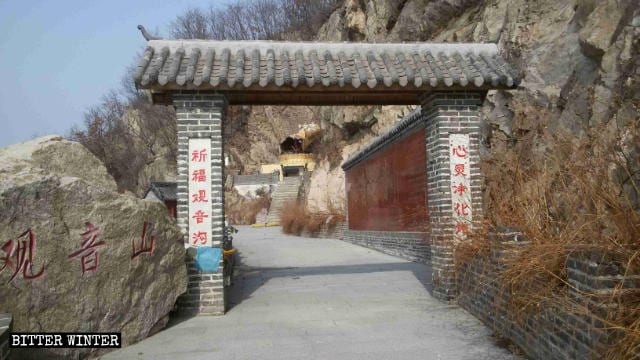Ancient Buddhist and Taoist temples in the province’s Xiuyan county have been closed down and harassed, even though they operated with the authorities’ permission.
Chen Jinsheng
Numerous Buddhist and Taoist temples and monasteries are among the most-visited local attractions in Xiuyan Manchu Autonomous County in Anshan city of northeastern China’s Liaoning Province. With years of history, the sacred places have been popular with Buddhists and Taoists alike to visit for retreats and worship. As the Chinese Communist Party (CCP) authorities’ religious persecution continues to escalate, several ancient temples in the county have been closed down, while others suffered the destruction of their symbols.
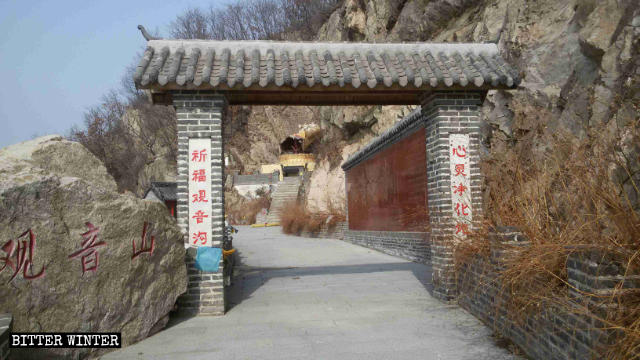
The history of Buddhist Guanyin’gou Temple spans for over 1,000 years: Built originally during the Tang Dynasty (618-907), it was one of the attractions at Longquan Lake, the national 4A-level scenic area in Xiuyan county. In September 2018, the county’s Ethnic and Religious Affairs Bureau ordered to destroy the statues of Lord Guan and Guanyin, both about 10-meters-tall. Workers toppled down the statues and used sledgehammers to destroy them, resulting in financial losses of over 300,000 RMB (about $45,000).

The reason for the demolition given by the authorities was that the statues “were too tall, too large, and illegal.” Six monks and three nuns who resided in the temple were forced to leave.
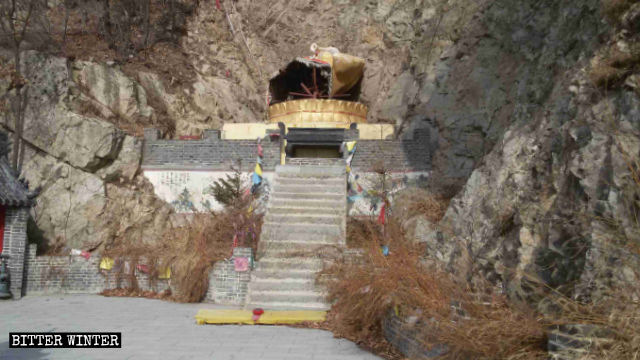
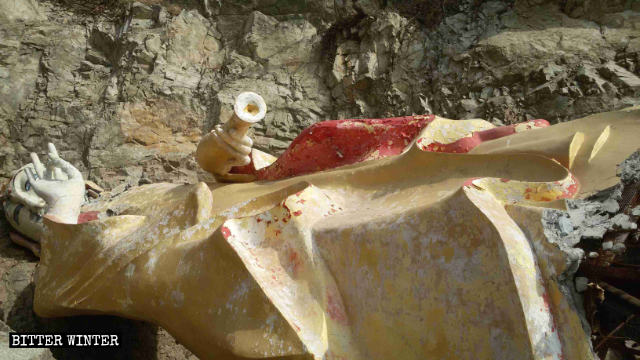
Wanshou Palace, a Taoist temple that has functioned for over a thousand years, was shut down in June 2018, on the grounds that it did not have a “religious activity venue registration certificate,” despite the fact that the temple was approved by the China Taoist Association and the Religious Affairs Bureau.
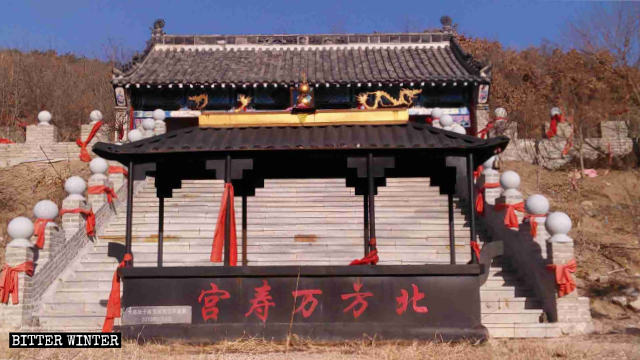
The inscription on the memorial tablet inside the temple reads that the original Wanshou Palace was also built during the Tang Dynasty but was brutally destroyed during the Cultural Revolution. Later, it was renovated at the cost of 1.6 million RMB (nearly $240,000).
The monks were forcibly expelled from the temple.
Commenting on the crackdown on temples, a local villager compared President Xi Jinping to Jade Emperor, one of the three divine teachers of Taoism: “Whatever he tells you to do, you have to do it! It’s difficult for monks to find peace and tranquility anymore.”
Ruifeng Taoist Temple, located in a historical and cultural site protected at the provincial level, has a history spanning about 500 years. On February 11, 2019, the authorities imposed an order prohibiting the burning of incense and the collection of worshipers’ donations at the temple.
An elderly resident commented: “The authorities don’t allow temples to make money through the burning of incense. On the surface, this seems to be for the sake of the people. In reality, the government just wants ancient temples to perish and die. They are so sinister and ruthless!”
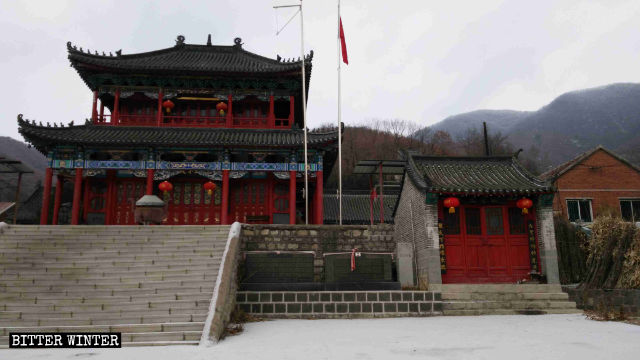
In August 2018, Xiuyan county’s Ethnic and Religious Affairs Bureau sealed off ancient Taoist Longwang Temple and forced two nuns who resided there to seek shelter elsewhere.

Covering the area of about 5,600 square meters and containing seven halls for worshiping, Longwang Temple was thriving, worshippers flocking in droves during fairs and festivals to burn incense.
According to a local resident, after Longwang Temple was sealed off, the authorities organized some villagers to keep an eye on it, making sure that no worshipers came to burn incense at the temple.
Go to Source
Author: Chen Jinsheng
